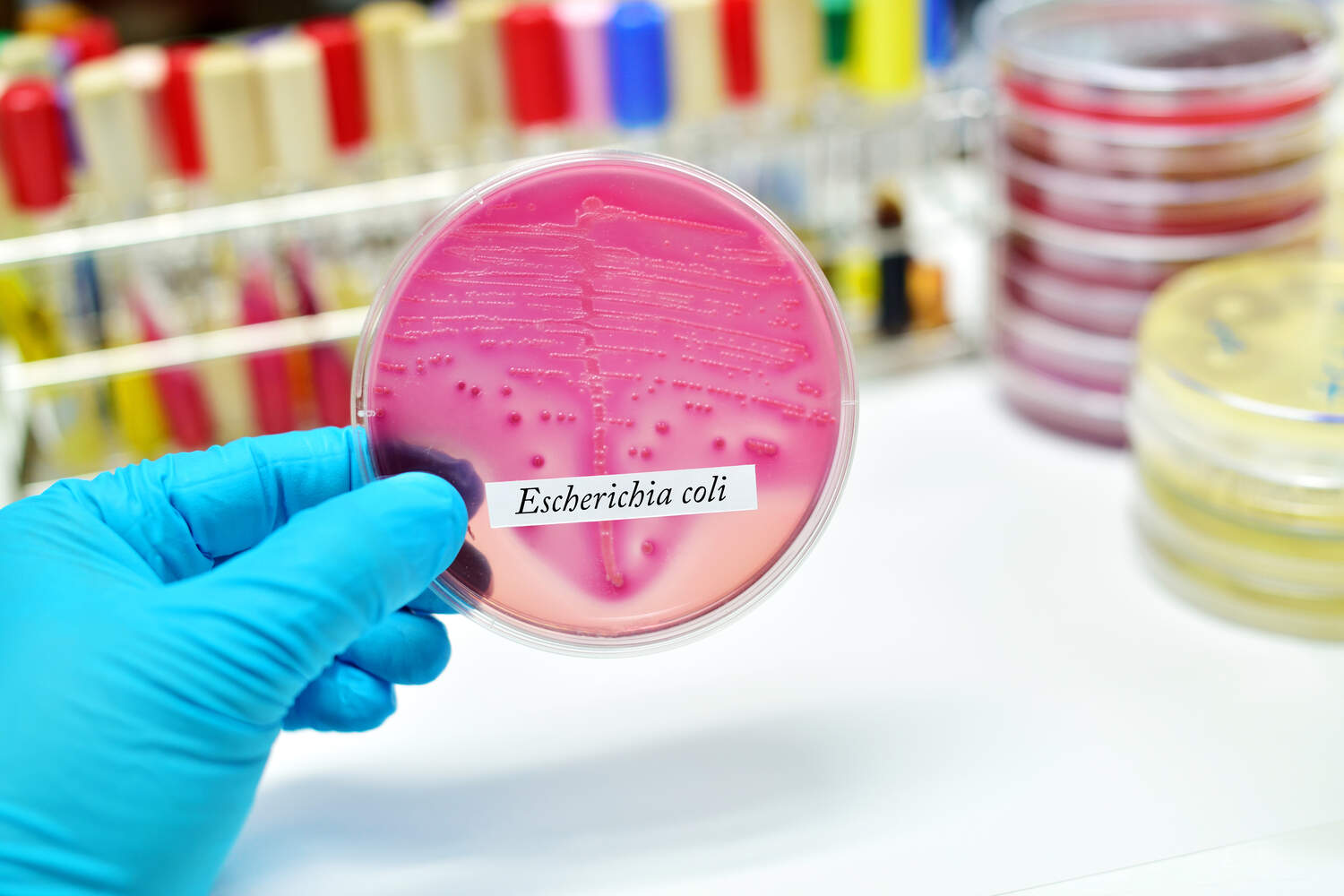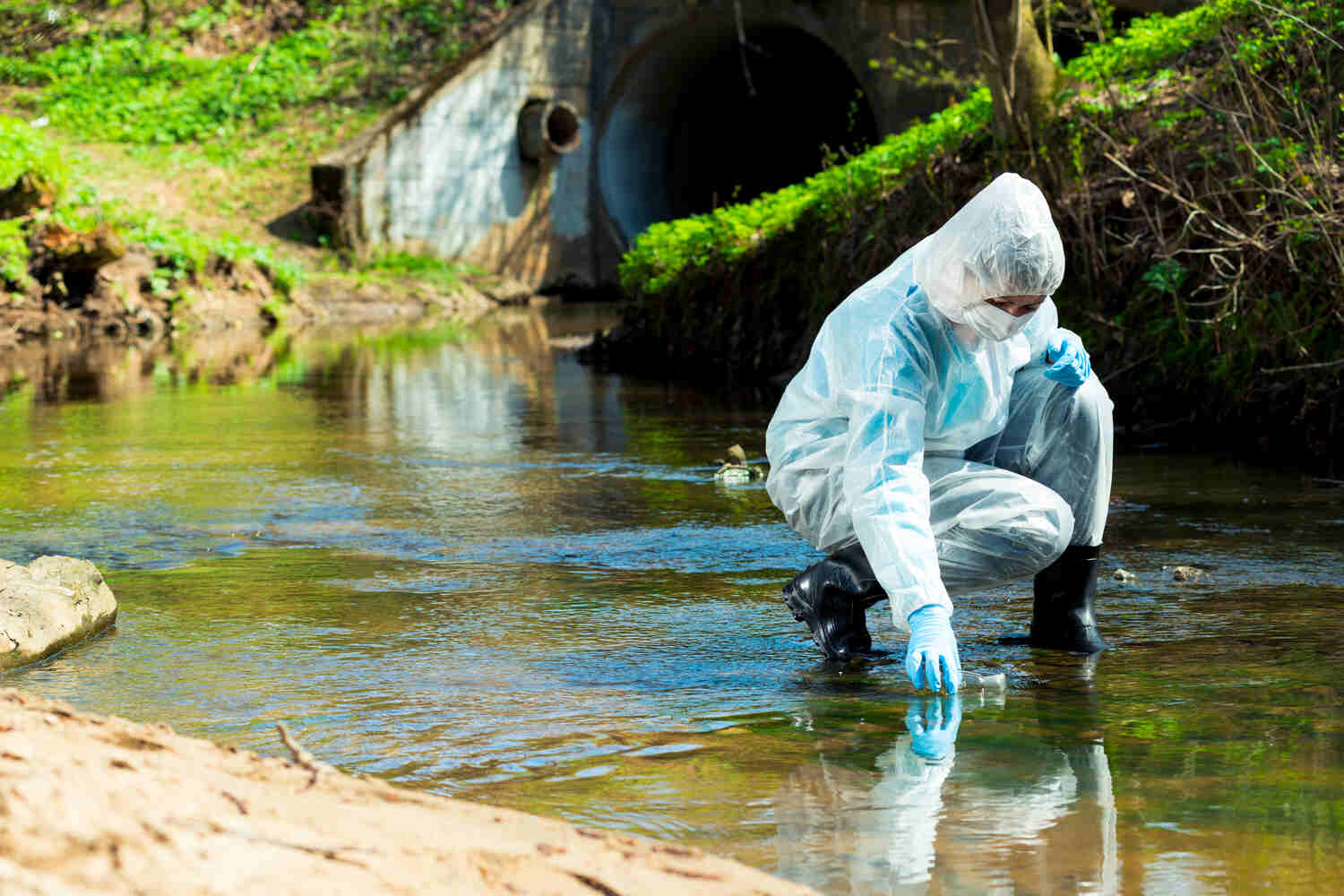 Infectious strains of E.coli during pregnancy can lead to food poisoning or urinary tract infections in pregnant women. Following cleanliness and good hygiene practices along with eating healthy and fresh food lessens the chances of getting infections.
Infectious strains of E.coli during pregnancy can lead to food poisoning or urinary tract infections in pregnant women. Following cleanliness and good hygiene practices along with eating healthy and fresh food lessens the chances of getting infections.
A weakened immune system during pregnancy makes the pregnant woman susceptible to a lot of infections. One shoould not avoid any signs and symptoms of infection during pregnancy. It is important to remember that as early diagnosis and timely treatment can prevent complications in the mother and the fetus.
In This Article
- What Is E.coli?
- What Are The Sources Of E.Coli?
- What Are The Symptoms Of E.coli Infection During Pregnancy?
- E. Coli Infection And Pregnancy
- How To Avoid E Coli Infection In Pregnancy?
- FAQ’s
What Is E.coli?
Escherichia coli or E.coli, is a gram-negative bacillus normally residing in our gut. There are many strains of these bacteria, and most of them are harmless to us. However, there are a few strains of E coli which are quite pathogenic and may lead to certain complications. It commonly causes serious food poisoning or urinary Tract infections. The consumption of contaminated, raw food, water and dairy products results in the spreading of Ecoli strain O157:H7.
What Are The Sources Of E.Coli?
 The bacteria normally live in the human intestines, where it’s beneficial to us by producing vitamin K2. There are a few bad strains that can affect our health. The common sources of getting infection are:
The bacteria normally live in the human intestines, where it’s beneficial to us by producing vitamin K2. There are a few bad strains that can affect our health. The common sources of getting infection are:
Fruits and Vegetables
Consuming improperly washed fruits and vegetables is one of the most common causes. Eating them raw can be dangerous too. An increasing amount of outbreaks are associated with the consumption of raw fruits and vegetables, including salads and leafy vegetables, which could be contaminated by animal faeces during cultivation and harvesting [1].
Un-pasteurized Milk
Drinking milk that has not been pasteurized may pass on the infection from the diseased animal to us. Apart from the fact that E. coli O157:H7 causes diseases, its presence in milk in large numbers can cause rapid spoilage of raw milk and milk products (UK National Dairy Council, 1981).
Meat Products
Eating contaminated or undercooked meat makes a good environment for E.coli to survive. Hence, makes it easy for bacteria to grow.
Contaminated Water
Consumption of water directly from natural reserves like lakes and rivers can be dangerous as it might be contaminated with infectious feces from other humans and animals.
Human Spread
Direct or indirect contact with an infectious person or child. Not washing hands after a contact or sharing the same washroom can be a cause. Handling the diapers of an infectious child can be a reason too.
What Are The Symptoms Of E.coli Infection During Pregnancy?
The symptoms vary from person to person, ranging from mild in some to severe or life-threatening in others. Symptoms usually develop within three to five days of exposure, while a few strains may develop symptoms as early as a few hours. The signs and symptoms to be watchful for are:
- Pain in the abdomen or a cramping sensation in the stomach.
- Diarrhea which can be watery or mixed with blood.
- Nausea and vomiting
- Loss of appetite
- Fever, which could be of low or a high grade depending on the severity of the infection.
- Pain or burning sensation while urinating.
- Increased urge to pee or even increased frequency of urination.
- For some women, there might be blood in their urine.
E. Coli Infection And Pregnancy
 A pregnant woman is easily susceptible to infections due to a weakened immune response. E.coli can affect the pregnant mother as well as the fetus. Any delay in diagnosis or treatment can lead to complications for both the mother and the baby. Persistent diarrhea and vomiting can cause the loss of body fluids. This can lead to dehydration, which ultimately may cause oligohydramnios or low amniotic fluid.
A pregnant woman is easily susceptible to infections due to a weakened immune response. E.coli can affect the pregnant mother as well as the fetus. Any delay in diagnosis or treatment can lead to complications for both the mother and the baby. Persistent diarrhea and vomiting can cause the loss of body fluids. This can lead to dehydration, which ultimately may cause oligohydramnios or low amniotic fluid.
Chorioamnionitis is the inflammation of chorion and membranes of the placenta. This can develop due to an E.coli infection, leading to neonatal sepsis and preterm delivery.Chorioamnionitis is a fetomaternal condition that can be caused by ESBL-producing E.coli which poses challenging infection control issues and is a serious global threat [2].
Preterm delivery remains a dreaded complication of E.coli infection due to the risk of membrane rupture. The infection found in the birth canal can pass on to the baby during delivery. In the event of any history of E.coli infection during pregnancy, the newborn must be checked for the infection [3]. Improving maternal education can be helpful in preventing neonatal E.coli colonization. Strong antibiotics used for treatment might affect the baby. Hence, a very vigilant treatment and close observation are needed.
How To Avoid E Coli Infection In Pregnancy?
Who doesn’t want a smooth and uneventful pregnancy? Women want to experience this beautiful journey without any bumps. To make sure one cherishes her pregnancy, one has to make sure to follow certain practices and precautions to avoid any chances of getting infected. Here are some tips to avoid E.coli infection in pregnancy:
- Wash fruits and vegetables thoroughly under running water to make sure their surfaces are free of any infection.
- As far as possible, avoid consuming raw vegetables outside. Make sure to have cooked vegetables.
- One should always cook meat products properly. Undercooked meat like steaks is a no-no in pregnancy.
- Avoid consuming unpasteurized milk and other dairy products including raw milk.
- Practice proper and frequent handwashing. Make sure to wash your hands after using washrooms and before cooking and eating.
- Use of alcohol-based sanitizers while in public places and during hospital visits.
- As far as possible, avoid swimming in common pool areas.
- Avoid using public toilets.
- All pregnant women should be routinely screened for bacteriuria using urine culture and treated with appropriate antibiotics [4].
It is important to stay aware of any of the above signs and symptoms of E.coli during pregnancy. The utmost care must be taken about the food that is consumed. Consuming fresh and properly cooked food along with maintaining proper personal hygiene is highly recommended. To seek medical help in case of any symptoms.
FAQ’s
1.What Not To Eat With E.Coli Infection?
Avoid raw, under cooked and stale food including un-pasteurized milk and dairy products. It is better to stick with a low-carbohydrate diet.
2. Can I Pass E.Coli To My Baby?
Yes. Often the bacteria passes on to the fetus through the mother’s infected genital tract during childbirth.
3. Can E.Coli Go Away On Its Own?
Most of the time, the infection is cures itself in a week’s time. However, in severe cases, doctors recommends the need for antibiotics.
References –
- E. coli
[https://www.who.int/news-room/fact-sheets/detail/e-coli] - Chorioamnionitis and neonatal sepsis due to extended‐spectrum beta‐lactamase‐producing Escherichia coli infection: a case report
[https://www.ncbi.nlm.nih.gov/pmc/articles/PMC8609183/] - Escherichia coli Colonization in Neonates: Prevalence, Perinatal Transmission, Antimicrobial Susceptibility, and Risk Factors
[https://www.mdpi.com/1648-9144/48/2/13] - Urinary tract infections in pregnancy
[https://journals.lww.com/co-urology/abstract/2001/01000/urinary_tract_infections_in_pregnancy.8.aspx]

